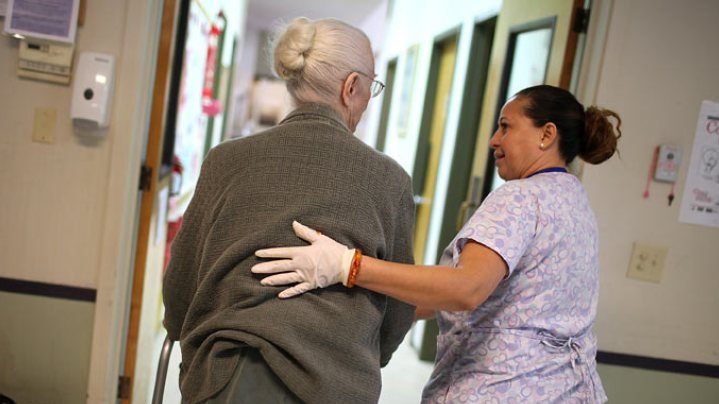REGINA – A union survey of 356 specialized health-care workers in Saskatchewan says understaffing is reducing quality of life for long-term care residents.

In February, the Health Sciences Association of Saskatchewan asked its members to respond to an online survey about long-term care services.
The results were released Tuesday.
The union says that hiring more specialists such as occupational therapists, speech pathologists, dieticians and physiotherapists could help prevent some of the major health issues experienced by long-term care residents.
Union president Karen Wasylenko says without sufficient occupational therapists, the seating needs of residents can’t be assessed to prevent skin break down and avoid wounds or bed sores.
She also says speech language pathologists can help residents learn to talk again, and assess problems with swallowing after a stroke, which is crucial because residents who choke on food are at a higher risk of developing pneumonia.
Professionals who responded to the survey pointed to particular concerns about the lack of these professional services in rural areas.
HSAS said many health regions either never had these specialists in place or cannot find people to fill open positions.
In response to the union survey, the Ministry of Health issued a comment saying the government has hired nearly 800 full-time equivalent employees in Saskatchewan’s long-term care since 2007.
“All of the recommendations from the ombudsman’s report have been accepted … and will be implemented,” said the government statement. “The minister of health, the Ministry of Health, and all health regions take this issue seriously and have made the care of long-term care residents a priority.”
HSAS is currently involved in collective bargaining over contracts.



Comments